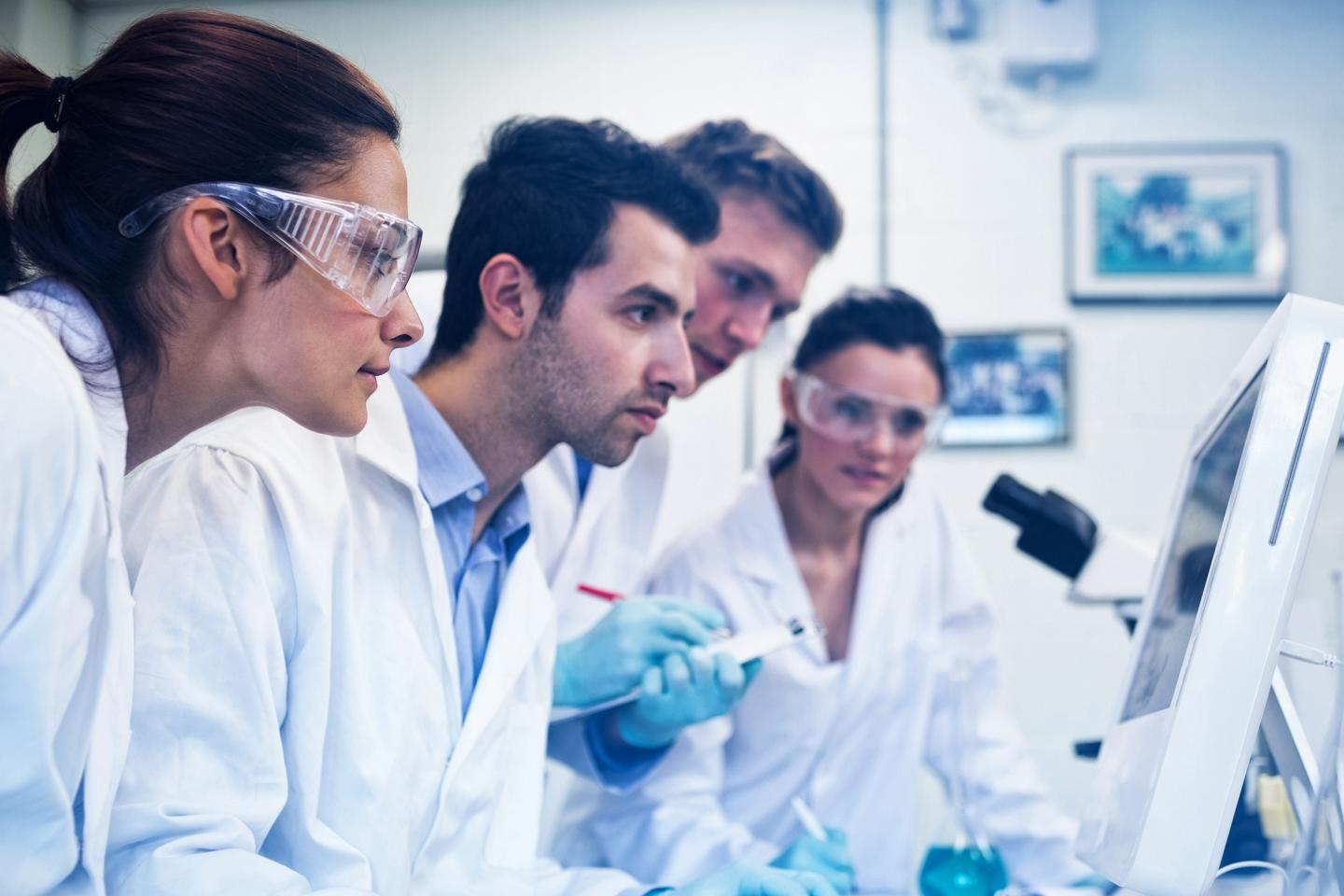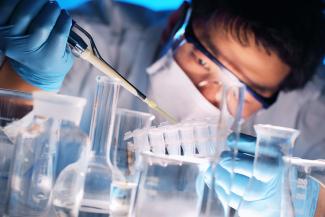The Medical Laboratory Science Program is the region’s foremost training program for students seeking a career as a scientist in a clinical laboratory setting. Taught in conjunction with the University of Tennessee, Knoxville, and accredited by the National Accrediting Agency for Clinical Laboratory Sciences, this 50-week program trains students in the skills necessary to become medical laboratory scientists (MLS). Learn more about the program here.
What is a Medical Laboratory Scientist?
A medical laboratory scientist, or MLS, formerly known as a medical technologist (MT), functions as a medical detective, performing laboratory tests that provide physicians with information that assists them in preventing, diagnosing, and treating diseases and maintain patient wellness.
The MLS performs a wide variety of laboratory tests, ranging from simple dipstick urine tests to complex DNA tests that help physicians assess risk of disease. Using test results, physicians can uncover diabetes, cancer, heart attacks, infections, and many other diseases.
Medical laboratory scientists interact with physicians, nurses, pharmacists, and other members of the health care team to provide timely, accurate information so the patient can receive the correct medical treatment.
Medical laboratory scientists use sophisticated biomedical instruments and technology, including:
- Microscopes
- Complex electronic equipment
- Computers
- Methods requiring manual dexterity to perform tests on blood, body fluids, and tissue specimens
Clinical laboratory testing sections include clinical chemistry, hematology, immunohematology (blood bank), immunology, microbiology, and molecular diagnostics.
What Will I Learn in the Program?
About the Program Structure
Classes begin the first week of January and the program accepts up to 12 students each year. The clinical year includes intensive classroom instruction and extensive clinical laboratory experience.
All student didactic instruction and clinical rotations are completed at The University of Tennessee Medical Center. Students rotate through:
- Blood bank
- Hematology
- Chemistry
- Molecular diagnostics
- Microbiology
As supplemental experience, students spend one week at CSL Plasma in West Knoxville and one week at Molecular Pathology Laboratory Network, Inc. in Maryville.
Skills Development
During the year students acquire intellectual skills to help them understand disease processes and gain proficiency in laboratory testing so they can provide physicians with necessary information to diagnose and treat their patients. MLS students learn to perform laboratory testing in each clinical section, using automated and manual testing methods.
The University of Tennessee Medical Center’s Level I Trauma Center challenges students daily to develop expert skills required to perform, interpret, and troubleshoot the testing in each department on various analyzers while under qualified supervision.
While in the didactic, or classroom, portion of the year, the students’ schedule is 8 am-4 pm Monday through Friday. During this period, one week is spent learning phlebotomy. During this phlebotomy week students report at 7am. The hours during the clinical rotations are typically 6:30 am-3 pm, except for the Microbiology rotation, which consists of three weeks on second shift, 2 pm until 10:30 pm, and is followed by four weeks on day shift, 6 am to 2:30 pm.
Changes in report times may vary but students are given ample notice of the changes. No weekends are required during the program year.
What Will I Receive When I Complete the Program?
When you complete the Medical Laboratory Science program at The University of Tennessee Medical Center you’ll have the knowledge and clinical experience to become a medical laboratory scientist.
Upon graduation, you’ll receive a certificate in Medical Laboratory Science from the program. If you are a 3+1 student of the University of Tennessee, Knoxville, a BS in Medical Laboratory Science will be conferred. If you are a 4+1 student, you will receive a certificate of completion. With your degree and certificate, you are eligible to sit for the American Society for Clinical Pathology national board examination. This will allow you to become board-certified as a MLS.
After successful completion of the state-recognized national certification exam and completion of all State of Tennessee application materials, you are eligible to receive a license from the State of Tennessee Medical Laboratory Board through the Department of Public Health.
You do not have to successfully complete the national board examination in order to receive your B.S. degree or MLS Certificate of Completion.
All policies and procedures are available upon request from the Program Director. Click here for a list of program policies.

